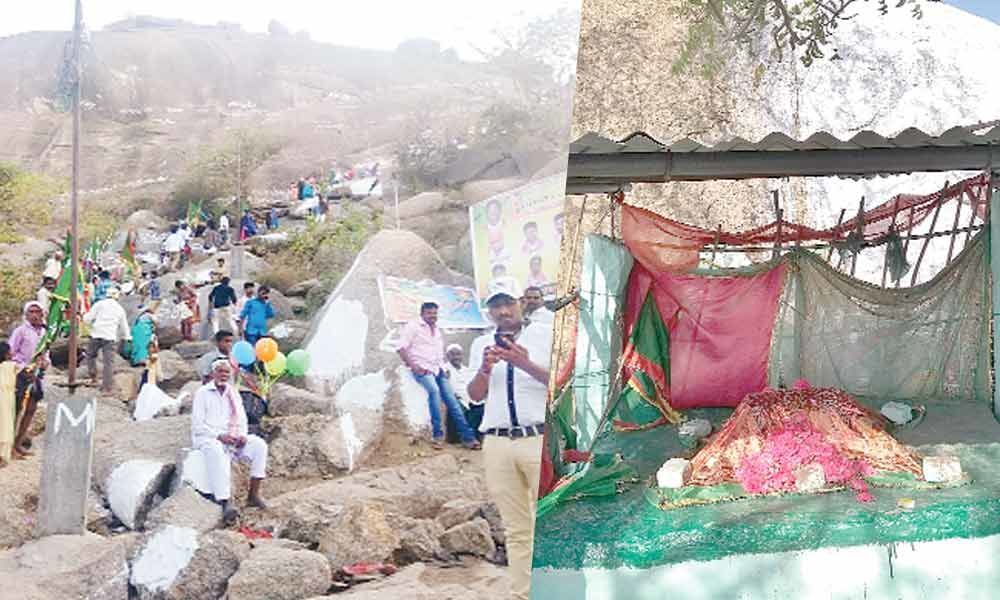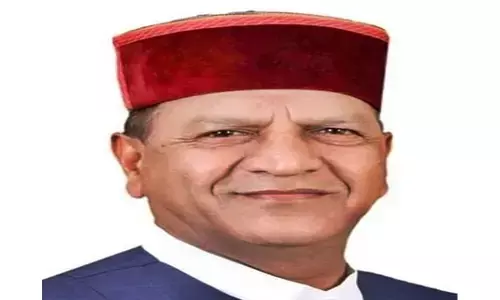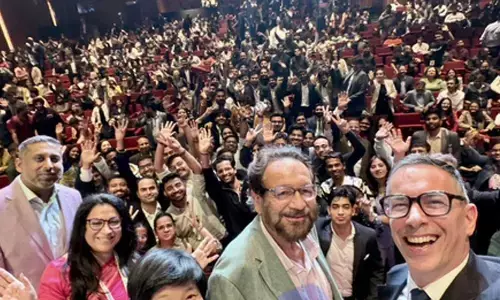A hillock where Ugadi, Urs coincide

The annual Syed Hazrat Fakir Shah Wali urs that coincides with the Telugu New Year, Ugadi, is perhaps one of the unique solemnisations where religion is no bar.
Damera (Warangal Urban): The annual Syed Hazrat Fakir Shah Wali urs that coincides with the Telugu New Year, Ugadi, is perhaps one of the unique solemnisations where religion is no bar.
Across the country, there are umpteen numbers of festivities that personify the communal harmony, but this urs reflects the Hindu-Muslim bond in a new dimension with people celebrating Ugadi, a major festival of Hindus in Telugu-speaking States – Telangana and Andhra Pradesh, and offering prayers at the Fakir Shah Wali dargah located on a hillock adjacent to Damera village.
The story of a medical practitioner, who emerged as pious saint Fakir Shah Wali, dates to British times. He worked as a doctor with a British regiment near Atmakur. In leisure times, he used to visit nearby villages and extend his services to poor and needy.
Once, he happened to turn to Damera village where people were reeling under leprosy, cholera and other maladies. He then decided to stay back in the village until the last person was cured completely. He not only provided healthcare to all irrespective of religion free of cost but also spent whatever wealth he had.
According to local lore, when Fakir Shah Wali was seriously ill due to geriatric problems, the villagers were caught in dilemma as there was not even a single Muslim among them to perform his last rites.
Noticing the villagers' dilemma days before his death, Fakir Shah Wali told them that he was to breath his last on Ugadi and all that the villagers had to do is to perform his last rites according to Islam.
After the saint's death, the locals sought the services of Mujawar, Lal Mohammed, from a neighbouring village. Much to the surprise of villagers, body of Fakir Shah Wali disappeared when he was taken to burial ground. Despite their efforts to find the body, the locals failed to find it.
The same night, Fakir Shah Wali, who believed to have appeared in the dream of some villagers, told them he has his Samadhi on the nearby hillock. Since then the hillock is known as Fakir Shah Wali gutta, it also became famous with devotees, especially Hindus, turning to dargah to offer prayers. They celebrate urs on the hillock every Ugadi.
Speaking to The Hans India, Mujawar committee, which organises urs, head Md Rahimuddin said: "The urs epitomises communal harmony in times of religious barriers. Even though the hillock has no steps to climb, a large number of people turn to the annual urs and offer prayers.
They climb the hillock with the help of ropes. We urge the government to take necessary measures for the construction of steps." He said that sandal was performed on Friday ahead of urs on Saturday.








